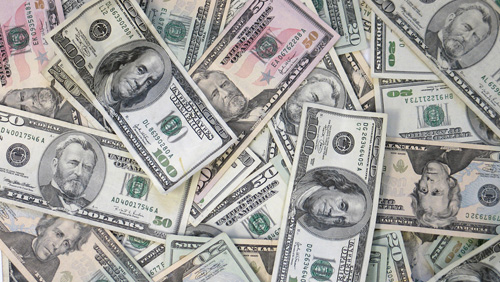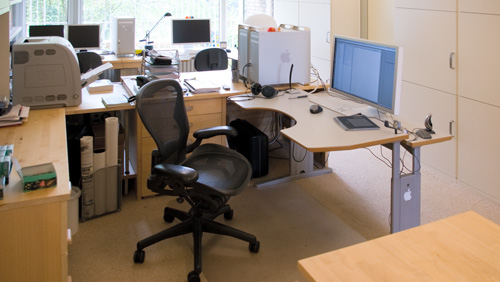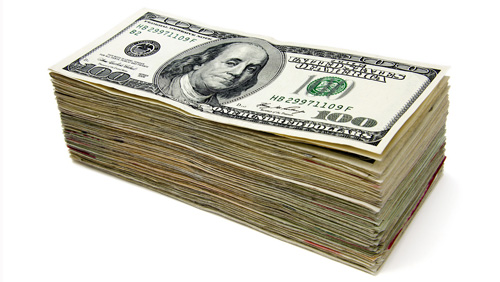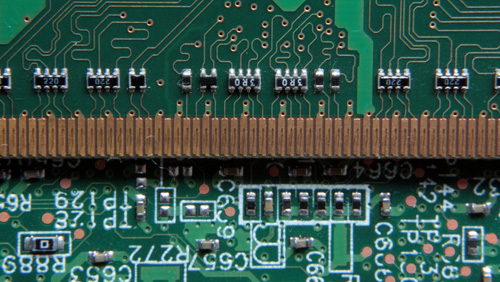Technology & Innovation
All Stories
The cap-and-trade market that successfully reduced acid-rain emissions is threatened by new federal regulations, says The Wall Street Journal. Could cap-and-trade work as well for carbon?
“The Internet is a Soviet bread line,” says Damon Darlin at The New York Times. Sure we are elated at all the “free” content, but we lose hours and hours searching for what we want.
“When the world’s productive capacities exceed the buying power of the world’s consumers, every government wants to increase exports and discourage imports. That spells trade war.”
Responsible for feeding the nation, farm labor should be an honored work and respected with livable wages and good working conditions. Lest we bite the hand that feeds, says the L.A. Times.
After pillaging the housing and credit markets, financial speculators have turned their gaze to chocolate. The price of cocoa has increased 150 percent in the last 18 months and producers are crying foul.
“The Internet-versus-books debate is conducted on the supposition that the medium is the message. But sometimes the medium is just the medium,” says David Brooks.
“The financial crisis in America isn’t over,” says James Galbraith. The renowned economist explains how restoring the rule of law on Wall Street should be the nation’s top priority.
Microsoft’s Imagine Cup challenges high school and college students to develop apps that address the world’s most pressing problems. The result is humanitarian mobile devices.
The online cartographic authority, Google Maps has the unenviable task of drawing borders across the most hotly contested territories on earth. Sometimes the company riles border disputes.
“Higher marginal tax rates mean more resources for job-creating, wage-generating public investments.” Slate.com says liberals agree: higher tax rates are a step away from debt.
The amount of money hedge funds make is only surpassed by the amount of secrecy surrounding how they make it. To pull back the curtain on these financial wizards, Big […]
“The spread of digital technology comes at a cost: it exposes armies and societies to digital attack,” says The Economist, which thinks cyberspace must be treated as a theater of war.
Two independent reports have exonerated the “Climategate” scientists, but you wouldn’t know it to read the news. Salon.com takes on the wet-noodle, mainstream press.
“By the end of next year, there’s a good chance that Android devices will have displaced the iPhone in terms of sales.” The Independent predicts closed-source programming will end Apple.
Thinking of launching its own social network site, Google has criticized Facebook’s “friend” function because it creates networks that don’t respect the boundaries of real life.
What should the U.S. do about the 26 million people who are currently unemployed, underemployed or marginally attached in the labor force? Boston College sociology professor Juliet Schor thinks that […]
In the throes of the financial crisis of 2008, novelist Tom Wolfe was asked where the downturn left his Masters of the Universe—the iconic testosterone-driven magnates of Wall Street featured […]
With so much information being stored in Web databases around the world, data now created will potentially stay recorded in the memory cloud forever. That’s why Viktor Mayer-Schönberger, Director of […]
A little financial education can be a dangerous thing, says one MIT professor of management. It gives investors a false sense of confidence in a world where complexity rules.
The online game Blizzard now makes its users submit their real first and last names in order to post comments. True/Slant asks if this is the end of Internet anonymity.
Will we become a couch-potato society of information consumers, or will we be empowered, motivated and active?
“Repeal of the estate tax imposes significant costs on the taxpaying public and promotes concentrations of wealth that harm our democracy,” says a Boston College law professor.
“New research finds that attractive people in the business world or academia may be at a disadvantage when they’re evaluated by a member of the same sex.” More at Miller-McCune.
Jagdish Bhagwati, professor of economics and law at Columbia, dispels five common myths about free trade such as, “Free trade may increase economic prosperity, but it is bad for the working class.”
“Just as healthy optimism can turn into irrational exuberance, a clear-eyed realism about the challenges facing the United States can gradually inflate a pessimism bubble,” says Ross Douthat today.
Murdoch is putting up paywalls and Jobs is censoring risqué apps. Have we reached the limits of free information exchange that everyone predicted from the Internet? What’s coming next?
Just give money to the poor, says a new book by the same name. In it, three British professors say direct cash payments to the developing world’s poor will help economies to grow.
“What’s so bad about deflation?” asks Slate. “After all, it’s a pleasant surprise when prices of many items fall.” As it turns out, there is good deflation and bad deflation, but which is which?
Would an xxx. domain for pornography make the industry easier to filter or would it simply increase the amount of explicit material available on the Web? And what does Steve Jobs want?
The Internet is a double edged sword for small retailers, says The Economist, providing a wider audience for niche products while giving big advantage to companies with economies of scale.



